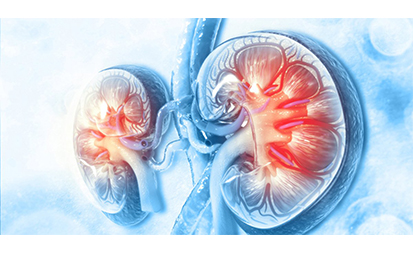Why Is Exercise Important For CKD Patients
Dr Suresh Shankar, Nephrologist and VP clinical affairs Simple exercises can help improve the health of patients with Chronic Kidney Diseases. Many patients with Chronic Kidney Diseases (CKD) are less physically active and have reduced physical

Dr Suresh Shankar, Nephrologist and VP clinical affairs
Simple exercises can help improve the health of patients with Chronic Kidney Diseases. Many patients with Chronic Kidney Diseases (CKD) are less physically active and have reduced physical functioning and performance compared to the ones that don’t suffer from this. However, strong research suggests that exercise interventions have the potential to boost several health parameters and outcomes in CKD patients.
Constant fatigue and muscle weakness, people with Chronic Kidney disease (CKD) have low levels of physical activity. The decrease in physical volume in this patient cohort is notable as it is associated with deconditioning and muscle wasting, deteriorating kidney function, and an increased risk of comorbidities such as cardiovascular disease, thus reducing the quality of life, frequent hospitalizations, and mortality.
Now that we know why exercise is important for CKD patients, let’s also understand what the meaning of exercise is. Exercise is defined as a planned, structured, and repetitive bodily movement to boost or maintain the desired shape. An example of this might be a 30-minute walk that improves aerobic fitness over time. While we all know that an inactive lifestyle could even be a strong risk factor for poor heart health, and exercise is useful to pump up overall health and reduce cardiovascular risk. In the past, the understanding was that vigorous physical activity is additionally harmful to those individuals with CKD, but it’s likely partially because of these beliefs that these patients show a scarcity of participation in exercise activities. However, CKD patients must follow an exercise program that’s designed to intensify the advantages and minimize the risks.
Research conducted over the last few decades has shown countless health benefits of regular exercise in patients with CKD. Some of the key benefits include increased physical fitness and muscle strength; prevention of muscle wasting; improvement in cardiovascular health; improved nutritional parameters; and a reduction of chronic inflammation. Physiological benefits are not all, exercise also improves the quality of life and has also shown psychological benefits such as decreases in anxiety, stress, and depression in CKD patients.
However, patients with CKD should bear in mind their physical activity limits and stop exercising after they feel tired, struggling to gasp for breath, sick, or dizzy. Other danger signals might include pain, muscle cramps, or a racing heartbeat. Additionally, exercise therapy should be stopped if the patient encompasses a fever, experiences worsening of symptoms, or has another health condition that becomes worse with exercise.
Patients with CKD should be encouraged to participate in regular physical activity. They all need various styles of exercise training that including:
- Aerobic exercise training like walking, swimming, or cycling
- Strength training
- Resistance training
- Flexibility training
The latest Nephrosis Improving Global Outcomes Clinical Practice Guideline for the Evaluation and Management of Chronic nephrosis lifestyle section recommends that individuals with CKD engage in physical activity for a minimum of half-hour per day, 5 times per week. Therefore, increasing physical activity is an essential aspect of disease prevention and management in CKD patients






